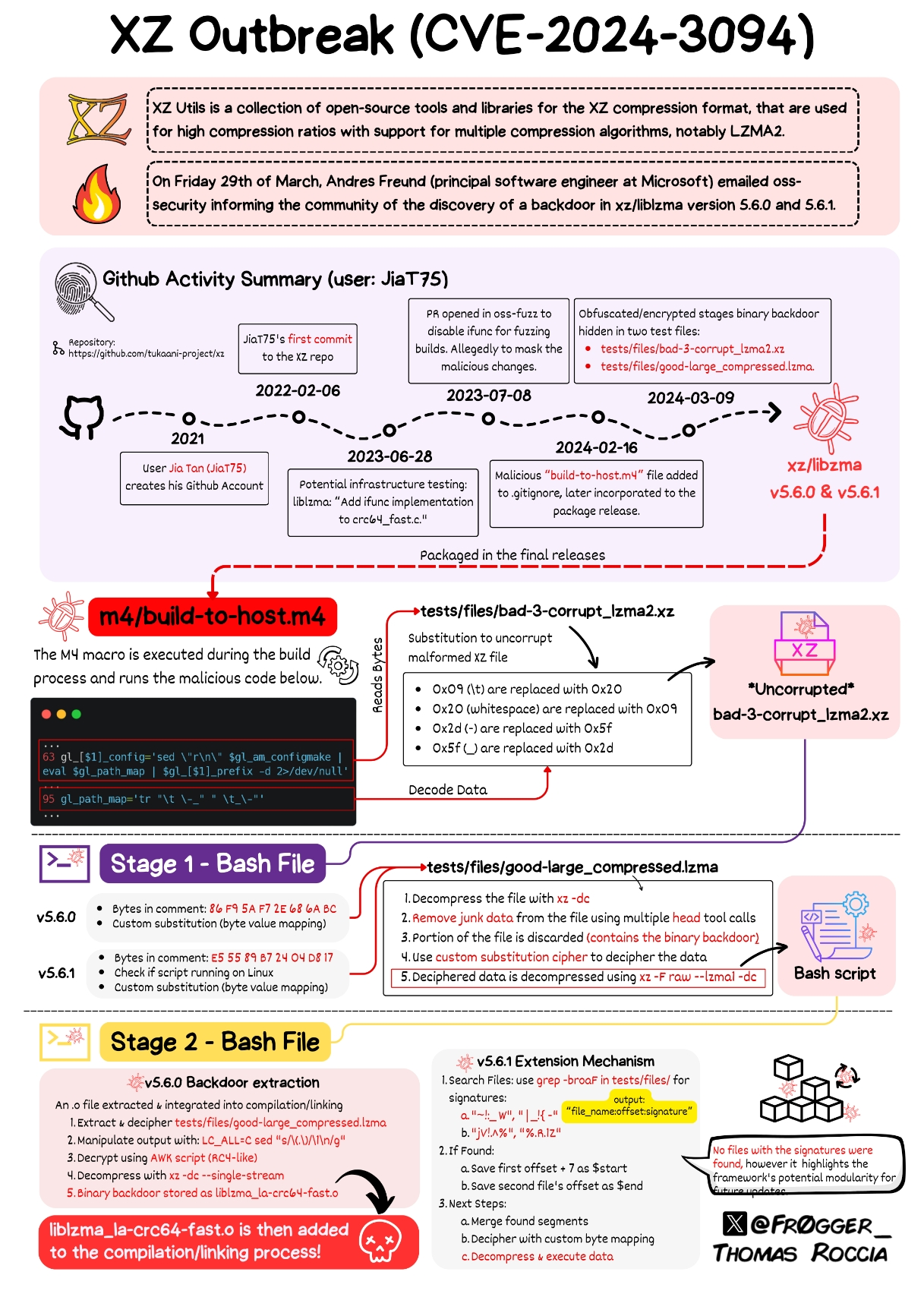this post was submitted on 01 Apr 2024
1221 points (99.2% liked)
Linux
48363 readers
1506 users here now
From Wikipedia, the free encyclopedia
Linux is a family of open source Unix-like operating systems based on the Linux kernel, an operating system kernel first released on September 17, 1991 by Linus Torvalds. Linux is typically packaged in a Linux distribution (or distro for short).
Distributions include the Linux kernel and supporting system software and libraries, many of which are provided by the GNU Project. Many Linux distributions use the word "Linux" in their name, but the Free Software Foundation uses the name GNU/Linux to emphasize the importance of GNU software, causing some controversy.
Rules
- Posts must be relevant to operating systems running the Linux kernel. GNU/Linux or otherwise.
- No misinformation
- No NSFW content
- No hate speech, bigotry, etc
Related Communities
Community icon by Alpár-Etele Méder, licensed under CC BY 3.0
founded 5 years ago
MODERATORS
you are viewing a single comment's thread
view the rest of the comments
view the rest of the comments

Prevention and detection
Most of the time, detection also means prevention, but with a whitelisting antivirus, prevention often means that the threat isn't detected, it was just prevented from running.
A whitelisting application has a list of what it knows it bad AND what it knows in advance to be good.
Anything it can't identify on the spot is treated as unknown and not allowed to run, not deleted, not quarantined, just blocked from running until the user can upload it to things like virustotal and other services like it to figure out if its safe.
upload it to virustotal, if it wasn't already known, do a re-scan a few hours later to see if it's malicious, if it was already known, do a re-scan to see if anything has figured out if its malicious.
which is why I think it's borderline criminal that most antivirus programs don't work that way.
That would do nothing for liblzma as it was trusted.
who was it trusted by? There's whitelisting applications that indiscriminately block everything that isn't already installed too.
The developer of XZ. What your describing is package verification which already happens
How would it know this? Is this defined by a person/people? If so, that wouldn't have mattered. liblzma was known in advance to be good, then the malicious update was added, and people still presumed that it was good.
This wasn't a case of some random package/program wreaking havoc. It was trusted malicious code.
Also, you're asking for an antivirus that uploads and uses a sandbox to analyze ALL packages. Good luck with that. (AVs would probably have a hard time detecting malicious build actions, anyways).
three different antivirus programs already do that. Comodo for example has a built in sandbox to do that.
It places unknown/new software in a sandbox. You want an AV that tests all pre-existing packages in a sandbox.